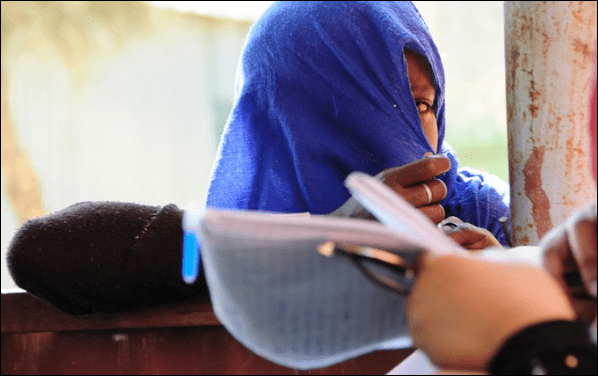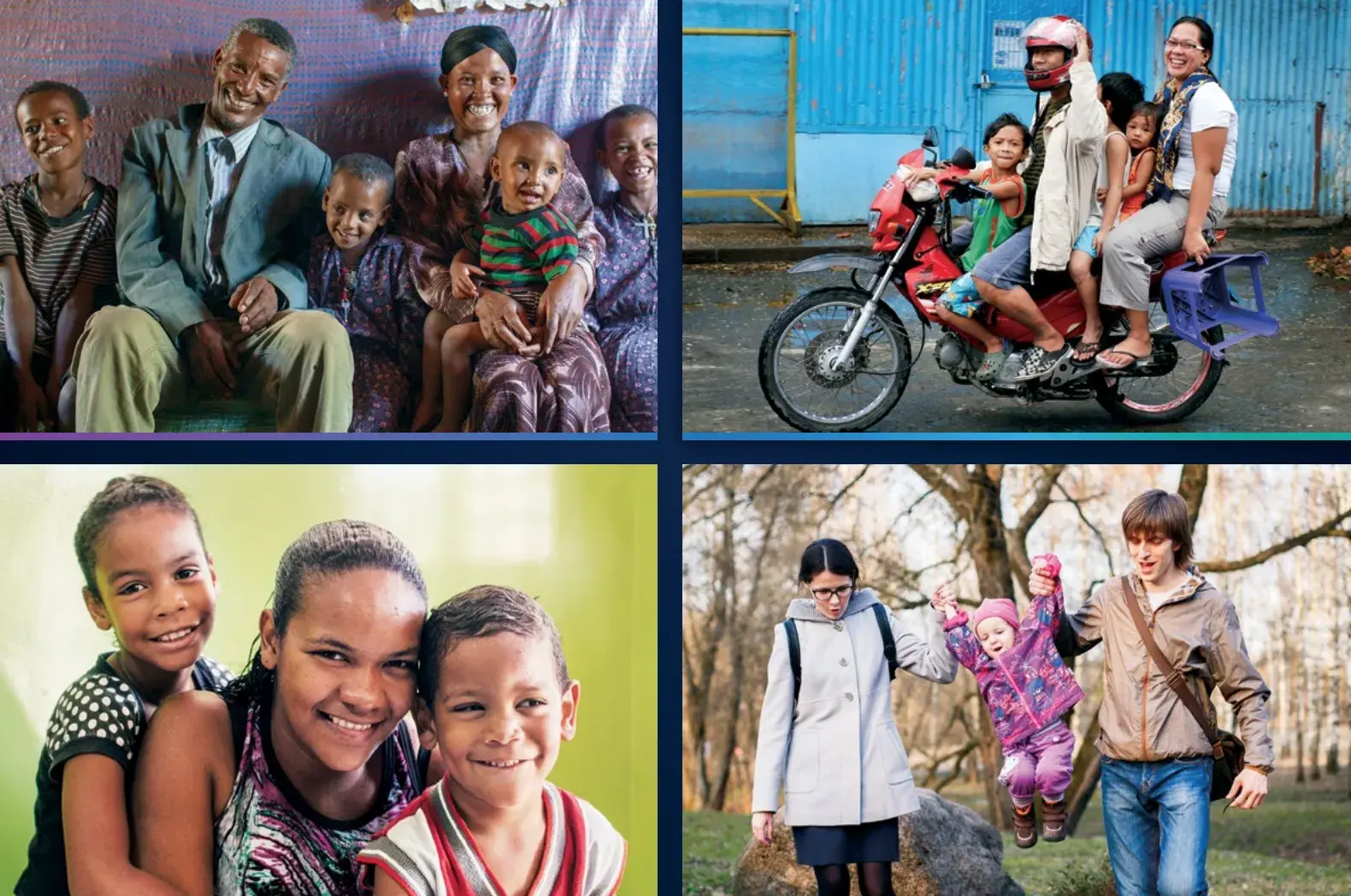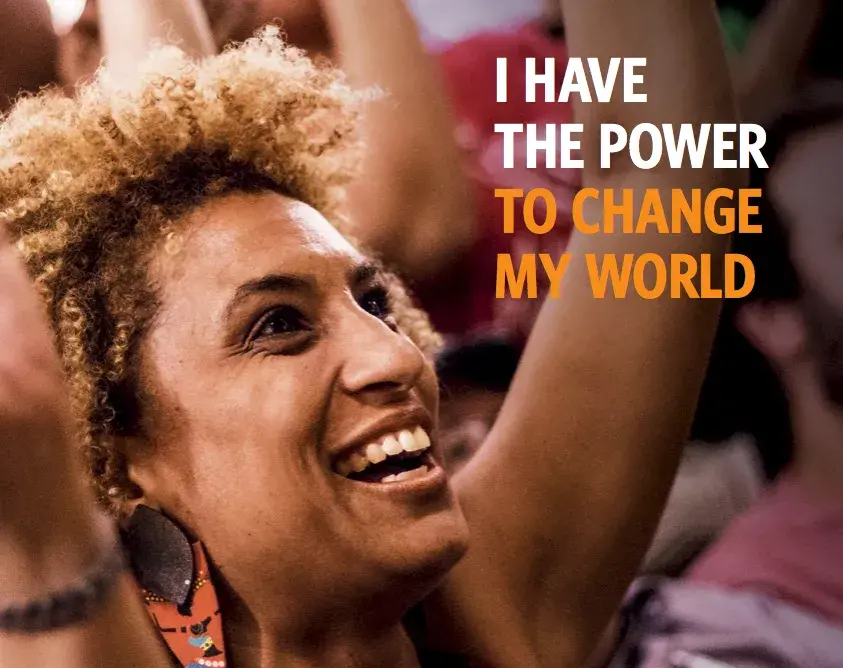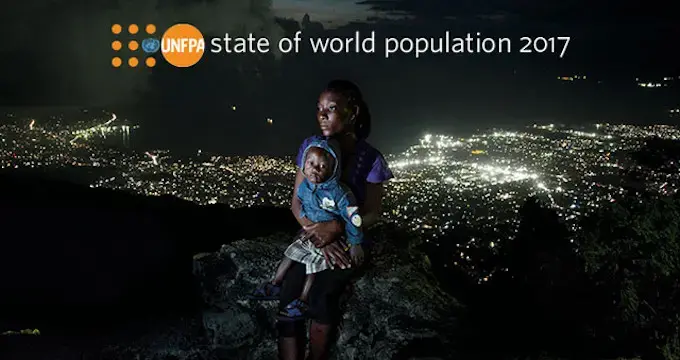Mariam, the UNFPA Arab States Regional Office Digital Ambassador, signalled the beginning of a new story for adolescent girls in the Arab region, she aims to raise awareness on, and end all harmful practices, including child marriage, female genital mutilation, inequalities and gender-based violence.
Mariam, a 15 years old Arab girl, is here to highlight the struggles, problems, challenges, opportunities, and victories of adolescents and youth within the region.
Mariam will introduce the UNFPA mandate and its related ideas, concepts, and references in a safe, educational, familiar, and human rights-based approach to the adolescents and youth of the region.
Recently, Mariam asked women and girls in the Arab region to share their first experience with menstruation through an online survey. The survey aims to give girls and women a platform to share their experiences with their first period in complete confidentiality.
We gathered these stories to extract lessons learned from survey participants to guide and educate adolescents on this natural biological development. The stories and messages will also be shared with our UNFPA ASRO colleagues to help and guide them in their work.
“Every girl, wherever she lives, will realize that she is not alone and that girls everywhere share similar challenges and concerns.” Mariam noted.
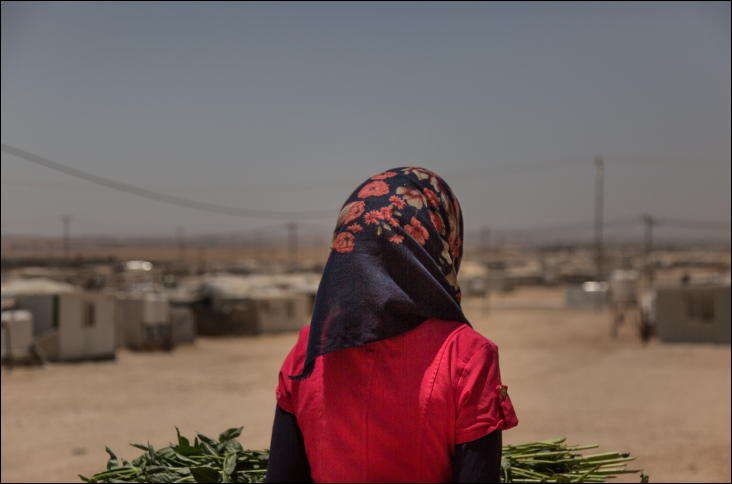
All women and girls should have full access to hygienic menstrual products. Photo © UNFPA Jordan
Menstruation is a fact of life and a natural monthly occurrence for the 1.9 billion girls and women of reproductive age globally. 107 million of them live in the Arab region. Yet millions of adolescent girls and women across the world are denied the right to manage their monthly menstrual cycle in a dignified and healthy way.
Managing the monthly menstrual cycle is even more difficult for the 15.5 million women and girls that live in humanitarian settings in the Arab region.
Perspectives and practices from the Arab region
A girl from Yemen said, “I always used cotton cloths, folded them and placed them in my underwear. I come from an uneducated family so I did not know that there were sanitary towels used for this purpose.”
The lack of reliable data and information on menstruation and the rare tools provided to adolescents girls in the region is alarming. Millions of girls are not rightly informed on safe and healthy transition into womanhood.
In the Arab region, gender inequality, discriminatory social norms, cultural taboos, poverty and lack of basic services affects girls’ and women’s ability to meet their menstrual health and hygiene needs in a dignified way.
Managing a period is even more difficult for girls in humanitarian settings, as privacy is scarce and clean sanitation facilities are often lacking. Due to the limited financial resources, women and girls are forced to use unsafe and unhygienic menstrual absorbents, such as old rags, wood husks, dried cow dung or ash.
This can impact women’s and girls’ lives in many ways, limiting their mobility, freedom and choices, affecting their attendance in schools and participation in community life, compromising their safety, limiting their contribution to the economy and causing stress and anxiety.
Is menstruation a taboo?
In several Arab countries, gender discrimination and socio-cultural beliefs around adolescence and periods were listed as obstacles to the delivery of menstruation health management activities dedicated to girls. For instance, in Syria, stigma around menstruation also translates into the impossibility to discuss it publicly or without a caregiver thus preventing girls from accessing menstruation health management information. In Jordan, socio-cultural beliefs are also barriers to adolescent girls’ access to reproductive health services, which constitutes the main entry point for menstruation health management information and services.
Menstruation is not one discussed openly. According to a recent UNFPA online survey, 40% of participating women and girls did not have any information about menstruation cycle prior to the first period.
In response to a question about their first periods and the accompanying feelings, the majority of participants shared sentiments of fear and worry.
A girl from Palestine wrote, “I wanted to grow like my older sister; I was happy but scared. My mom congratulated me; she gave me sanitary pads, but didn’t show me how to use it or how to take care of myself. She was shy about it. She thought I knew everything.”
It is also worth noting that close to two thirds of participants reported receiving support from their mothers or friends after they had their first period not before.
“My mother got married at an early age and until now she does not know the basics of how to deal with the periode and does not want to learn. I learned from my sister, who learned from her friends, and the information was not enough.” replied a survey participant from Saudi Arabia.
”When I saw the blood I was shocked, feared and sad that I was no longer a child,” replied a lady from Morocco explaining the severe pain that she felt for two days and could not tell anyone about what she was going through. . “ The time when I go through the period every month becomes an unbearable hell, mocking looks from my brothers, and physical and psychological torture, especially since I was overwhelmed with housework besides my studies, and my mother deprived me of rest and forced me to do all the housework without medicines or a visit to the doctor.”.
Education:
“I felt ashamed of my body, not aware how to clean it or how to take care of it. I did not understand what my period was, as I did not receive any information at that age about sexual health. I felt heavy and helpless at the time.” Says a lady fromPalestine
UNFPA works to improve education and information about menstruation and related human rights concerns. Through its youth programmes and comprehensive sexuality education efforts, such as the Y-Peer programme, UNFPA helps both boys and girls understand that menstruation is healthy and normal. UNFPA also helps raise awareness that the onset of menstruation does not signify a physical or psychological readiness to be married or bear children.
Mariam, UNFPA ASRO digital ambassador, advocates for change to improve the realities for many adolescents. She will be there to empower other girls and to accentuate the struggles, problems, challenges, opportunities, and successes of adolescents and youth within the region.
It is a vision, which aligns with the United Nations Sustainable Development Goals, our own three zeros: zero unmet need for contraception, zero preventable maternal deaths and zero gender-based violence and harmful practices, such as child marriage and female genital mutilation.along with the overarching principles of human rights.

